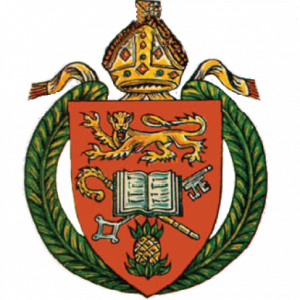The Diocese of Jamaica and The Cayman Islands will begin in 2020 a year of activities to commemorate the 150th anniversary of its independence from state control in 1870 when it was disestablished. The Church did not ask to be disestablished; this decision was imposed by the Government.
Why Are We Celebrating?
By separating the Church from the State, and placing responsibility for its administration in the hands of its members, the Church was able to grow and expand in ways which were not possible before. We take for granted today, the annual Synod and, indeed, the entire Diocesan structure, but these are the results of Disestablishment. The extensive religious, educational and social welfare services and programmes now operated by the Church are among the many positive developments since 1870.
For us today, the act of disestablishment suggests liberation and freedom from the fetters of the Government. In fact, the Church, as the body of Christ, is a liberating force with the obligation to free people in body, mind and spirit. Disestablishment, therefore, allowed the Church to fulfill its mission to a wider number of persons, especially the majority black population who were recently freed from slavery.
This is reflected in the theme chosen for the year’s activities:
‘The Anglican Church 1870 – 2020: Liberated to Liberate: Assessing the past, Contemplating the present, Strategising for the future’.
What Led to Disestablishment?
- Government removed its funding for the clergy (gradually at first) and gave up responsibility for the governance of the Church as it could no longer afford to finance the Church’s operation due to the country’s deteriorating economic conditions.
- In addition, the Government was coming under increased pressure for its financial support for the Anglican Church which represented a minority of the church-going population. In 1865, the island’s population was estimated at 400,000. Of this number, 162,374 claimed some church affiliation, and only 48,824 identified themselves as Anglicans.
- On June 15, 1870 ‘A Law to regulate the gradual disendowment of the Church of England in Jamaica and for other purposes’ was passed by the Legislature. (Law 30 of 1870).
- The first Synod under this law was held from September 29 – 10 October 1870; and it drew up Canons and Regulations for the Church. An Incorporated Lay Body was established to which all church property was later transferred.
Aims of Commemorative Activities
- Evaluate the democratization of the Church through Synod over the years;
- Examine the sources of funding for the Church’s activities after 1870;
- Assess the Church’s work in education and social welfare;
- Explore the role of government, civil society and religious bodies in the disestablishment process;
- Evaluate the success of the Church in incorporating marginalized members of society within its operation; (Was it inclusive?)
- Discuss the Church’s response to the social, cultural and religious developments within the changing society since 1870; and plan for the future.
Planned Activities
- Diocesan Service of Celebration at the National Arena on June 14, 2020 (the Sunday closest to June 15 when the Law to disestablish the Church was passed in 1870) This launch event will involve members of congregations across the Diocese.
- A Diocesan Mission will be conducted on a regional basis with activities mounted at Cure/Deanery levels.
- A Symposium.
- A Pageant depicting the history of the Diocese
- A Musical Event featuring Diocesan choirs and schools
- An Exhibition
Further details of the activities will be provided in the next issue of The Anglican.
First Published in THE ANGLICAN December, 2019


